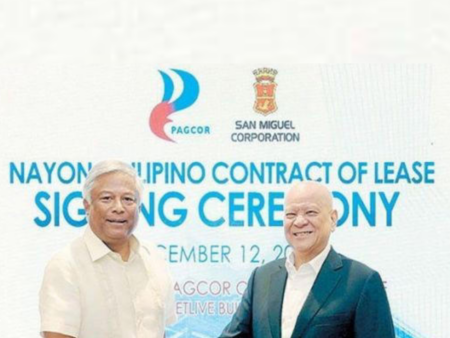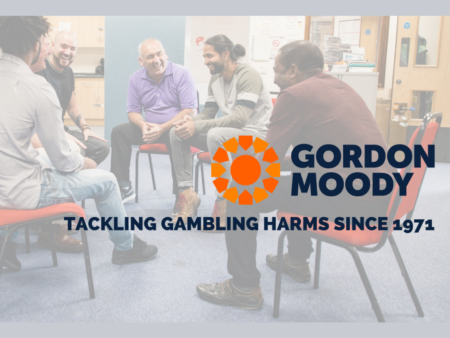Gordon Moody has once again demonstrated its commitment to tackling gambling-related harm by introducing an innovative Gambling Support First Aid training program. The new initiative is designed to equip individuals with essential skills and knowledge to recognize and effectively respond to signs of gambling-related harm among friends, family members, or colleagues. This training seeks to bridge the gap between those affected by gambling addiction and the support services available to them.
What is the Gambling Support First Aid Program?
The Gambling Support First Aid program is a comprehensive, two-day course available both online and in-person. The training is aimed at adults aged 18 and over who are looking to deepen their understanding of gambling-related harm and develop the tools necessary to provide support.
The training has been meticulously designed by experts at Gordon Moody, a leading organization in the treatment and support of individuals affected by gambling addiction. With over 50 years of experience, Gordon Moody has long been at the forefront of developing evidence-based interventions that address the complex emotional, mental, and social aspects of gambling addiction.
Why This Training Matters
Gambling-related harm is a growing public health concern, affecting not just the individual gambler but also their family, friends, and the wider community. The stigma surrounding gambling addiction often prevents people from seeking help, and this is where the Gambling Support First Aid program steps in.
Monica Shafaq, CEO of Gordon Moody, emphasized the importance of addressing this stigma. She stated, “I am delighted that we are launching Gambling Support First Aid training. It’s important to us to address the stigma associated with seeking support for gambling-related harm.”
The program offers a safe and supportive learning environment, helping participants to become empathetic and informed links between those in need and professional support services. By fostering a greater understanding of gambling-related harm, the program seeks to build communities where individuals feel empowered to talk openly about their struggles without fear of judgment.
A Holistic Approach to Gambling Support
One of the key features of this training program is its holistic approach. Rather than focusing solely on intervention, the course integrates mental health awareness with practical first-aid techniques. This combination ensures that participants are equipped not only to intervene when gambling-related harm is identified but also to understand the broader mental and emotional challenges associated with gambling addiction.
The training will also emphasize the importance of creating a supportive and non-judgmental environment. Participants will learn how to develop action plans that guide affected individuals toward professional help, ensuring that their journey towards recovery is compassionate and well-supported.
Key Components of the Program
The Gambling Support First Aid course covers a wide range of topics, providing participants with a solid foundation in recognizing and responding to gambling-related harm. The curriculum includes:
- Understanding Gambling Addiction: Participants will gain insight into the nature of gambling addiction, how it develops, and its impact on individuals and their families.
- Recognizing the Signs: Early recognition of gambling-related harm is crucial. Participants will learn to identify behavioral and emotional signs that may indicate someone is struggling with gambling.
- Effective Communication: How to approach individuals in a non-judgmental and supportive manner, encouraging them to open up about their gambling-related issues.
- Intervention Strategies: Practical techniques for intervening when gambling-related harm is identified, including how to offer support and guide individuals towards professional help.
- Mental Health Awareness: Understanding the link between gambling addiction and mental health issues such as anxiety, depression, and stress.
- Developing an Action Plan: Creating personalized action plans to support individuals affected by gambling addiction, with clear steps towards seeking help from specialized services.
Supporting a Stigma-Free Environment
One of the main challenges in addressing gambling-related harm is overcoming the stigma that often prevents individuals from seeking help. As Monica Shafaq explained, “Our training will help individuals create supportive, non-judgmental environments where not only speaking about these issues is supported, but where there is a clear action plan in place to help individuals who may be affected gain professional help.”
This focus on creating a stigma-free environment is a cornerstone of the Gambling Support First Aid training. Participants will learn how to create spaces where individuals feel safe and supported in discussing their gambling-related struggles. By fostering an empathetic approach, the program aims to reduce the barriers to seeking help and to encourage earlier intervention.
Recent Developments at Gordon Moody
In addition to the launch of the Gambling Support First Aid program, Gordon Moody has been making strides in addressing gambling-related harm, particularly through its women-only residential support program. This initiative has provided much-needed help to women affected by gambling addiction, a group that has often been overlooked in discussions about gambling-related harm.
The results of this program have been promising, with participants reporting significant improvements in their mental and emotional well-being. The success of the women-only program underscores Gordon Moody’s commitment to providing targeted, effective support to those in need.
Conclusion: The Training Program
The launch of the Gambling Support First Aid training program marks a significant step forward in Gordon Moody’s mission to tackle gambling-related harm. By equipping individuals with the knowledge and skills to recognize and respond to signs of gambling addiction, the program is helping to build stronger, more supportive communities where people feel empowered to seek help.
FAQs About Gordon Moody’s Gambling Support First Aid Training Program
1. What is Gordon Moody’s Gambling Support First Aid training program?
The Gambling Support First Aid training program is a two-day course aimed at providing individuals with the knowledge and skills to recognize and respond to signs of gambling-related harm. The program is available both online and in-person and is designed for adults aged 18 and over.
2. Who can attend the Gambling Support First Aid training program?
The program is open to any adult aged 18 or older who wants to learn more about gambling-related harm and how to support those affected. This includes friends, family members, colleagues, or anyone interested in making a positive impact.
3. What topics are covered in the Gambling Support First Aid training?
The course covers a range of topics, including:
- Understanding gambling addiction and its effects
- Recognizing early signs of gambling-related harm
- Effective communication and intervention techniques
- Mental health awareness and its link to gambling addiction
- Developing a support action plan to guide individuals toward professional help
4. How is the program delivered?
The program is offered both online and in face-to-face sessions, making it accessible to participants regardless of their location or preference for learning format.
5. Why is the program important for addressing gambling-related harm?
The Gambling Support First Aid program helps to break down the stigma associated with gambling addiction. It equips participants with the knowledge and tools to offer non-judgmental support and to create an environment where individuals feel safe discussing their gambling problems and seeking help.
6. How does the training help reduce stigma around gambling addiction?
The program fosters an empathetic and supportive environment where participants are trained to approach gambling-related issues without judgment. By encouraging open conversations and offering a clear path to professional help, the program helps reduce the stigma that often prevents people from seeking assistance.
7. What makes this training program unique?
The program adopts a holistic approach by combining mental health awareness with practical intervention techniques. This ensures that participants are not only trained in recognizing gambling-related harm but are also equipped to understand and address the broader emotional and mental health challenges that often accompany gambling addiction.
8. How does Gordon Moody’s women-only residential support program relate to this initiative?
Gordon Moody has also been running a women-only residential support program that has helped women affected by gambling addiction. The success of this program reflects the organization’s commitment to providing targeted support to vulnerable groups, complementing the goals of the Gambling Support First Aid training.
9. How does the program integrate mental health awareness with gambling support?
The training combines mental health awareness with practical first-aid techniques to provide a complete understanding of the emotional and psychological aspects of gambling addiction. This allows participants to offer more comprehensive support to individuals facing gambling-related harm.


















